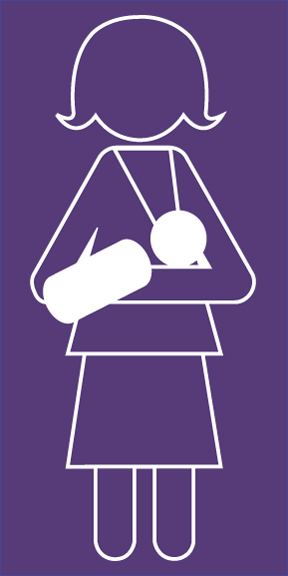Students from all majors were invited to a Women in Science and Engineering Panel,
featuring Q&A bon
success and advancement of women in STEM. Panelists included Cristina
Albunio PE, Agency Engineer, OCRRA (formerly a consultant with Arcadis; alumna ERE); Katie Cooper (air dispersion modeling) and Maria "Mimi" Scicchitano (wastewater; alumna ERE), O’Brien and Gere; and
Danielle Hurley, Department of Water, Onondaga County (alumna EFB). Maria is also currently a part-time graduate student at SU. The panel was moderated by ERE department chair (and sole female member in that department) Dr. Lindi Quackenbush. The event was coordinated and hosted by NYWEA and the ERE Club.
What is the climate like at your workplace? May vary depending on the group, composition and the manager. The percentage of women is more balanced in the younger cohorts. Two had issues (different sectors) with single individuals that has treated differently, to the degree they went to HR--which improved the situations. (See follow up question below). Women were dropping out at 8-10 yr mark because part-time was way out, not way up. All received encouragement to move forward.
Difference between industry and public sector? Yes.
In ERE, current class is ~50% female.
Are any of you in the field you anticipated as a little girl? Cristina says yes, was inspired by a tour at OCRAA's waste to energy plant, and lucky a position opened up there a few months ago. Katie as well: Meterology didn't come into her focus until a freshman in high school, but didn't want to be on TV, radio, etc., but air pollution route interested her through college. Maria became interested in science in high school, but didn't consider wastewater until college. Danielle: not many 5 year olds will tell you want to work in wastewater (Katie: but they will ask what happens to what goes down the toilet!), but wanted to work with animals, focusing on fish in masters program. Lindi discovered surveying in 10th grade.
Were you ever told what you do like or don't like [as a child, because a girl]? Yes, one was told to "do something easy and find a husband." Another "Are you sure you can do that?" by engineer relatives. Challenge accepted! And she surpassed them in scope of job and credentials, noting that "Bias has been motivation to do more." However, contrary to their mothers' generation, all were expected to go to college, and choices were no longer limited to teaching and nursing. One of their mothers was explicitly told no, although all her brothers were anticipated to go. And another was told "So, what do you want to do? You can be anything." But when the response was "nuclear physicist", counselor backpedaled, revealing that by "anything", they'd meant "nursing or teacher."
Had impression that older cohorts were male because that's who was going into engineering, not because women were dropping out at faster rates. What could individuals do differently? Coworkers that successfully stayed within the field re-prioritized their time, and sacrificed career advancement opportunities. Those that "off-ramped" to care for families have had a very difficult time finding opportunities to reenter the workforce. What can companies do to make it easier for women to stay, or for it to be more acceptable for men to temporary off-ramp? Many managers didn't realize that part-time was even an option, so didn't offer it and if they did, didn't know how to advise appropriately. Make the schedule transparent; individual schedules should show the times not scheduled to work clearly, so important meetings aren't scheduled when you aren't expecting to be there. Pro-rate timelines for promotion, rather than eliminating the option. Increase communication within teams to meet client needs. Expect all employees to have work-family balance. Partner may also be in a time constrained profession which will also compound that. One of the panelists with children noted that she was asked many times during pregnancy "So, are you going to go part-time, or become a stay-at-home mom?" and the repetitive nature of the question could cause employees to second-guess a choice that doesn't include either option. [note: the expectation that this is going to happen at some point or another can also cause women to be overlooked for advancement opportunities]. She also noted that husband was never asked the same question, and recommended not asking it of anyone, or to make it equal opportunity "Are either of you going to cut back workload or stay-at-home?"
Cultural expectation: In Australia, people take vacation. If you take time off, you won't come back to all that compiled work. Here, industry folks are expected to be available by phone and email even while on vacation and get negative comments when don't. Which is not what company officially promotes. For the panelist working around classes, also receives comments about that. County employee--most positions are team based, so other people are on call for coverage during your vacation, which is a much better scenario. One notes a spouse who has a position where he is not only not expected to check in from time off, he cannot--he must use company time and resources to check email. Another's spouse has a similar schedule: when shift is over, responsibilities are passed on to the next shift, and he's 'free' until next scheduled shift.
Other advice? Advocate for self: earn your advocacy, need to work hard and prove yourself, and also learn who to ask. When hear something that bothers you, say something. You'll feel better, and may make a change. May need to go to a higher authority. Small, soft-spoken "You will not be taken seriously."
Do you have a network of supporters to bounce things off of? How confident were you in approaching HR? Neither's first impulse was to go to HR. They discussed with family members, and trusted coworkers, who encouraged them to do so. In general, when you are the only (or one of few) women, its more challenging to recognize as a systemic issue. But when you do, you choose either keep working in this environment as is, and it weighs on you, or address it. Once you advocate for yourself a few times, it does get easier. Find a network that you can bounce things off of, whether or not they look like you.
What does future hold--what challenges moving forward and what do do about it? Read Lean In, by Sheryl Sandberg. Get past gender issues, as children generally have two adults in their lives. Help each other along.









